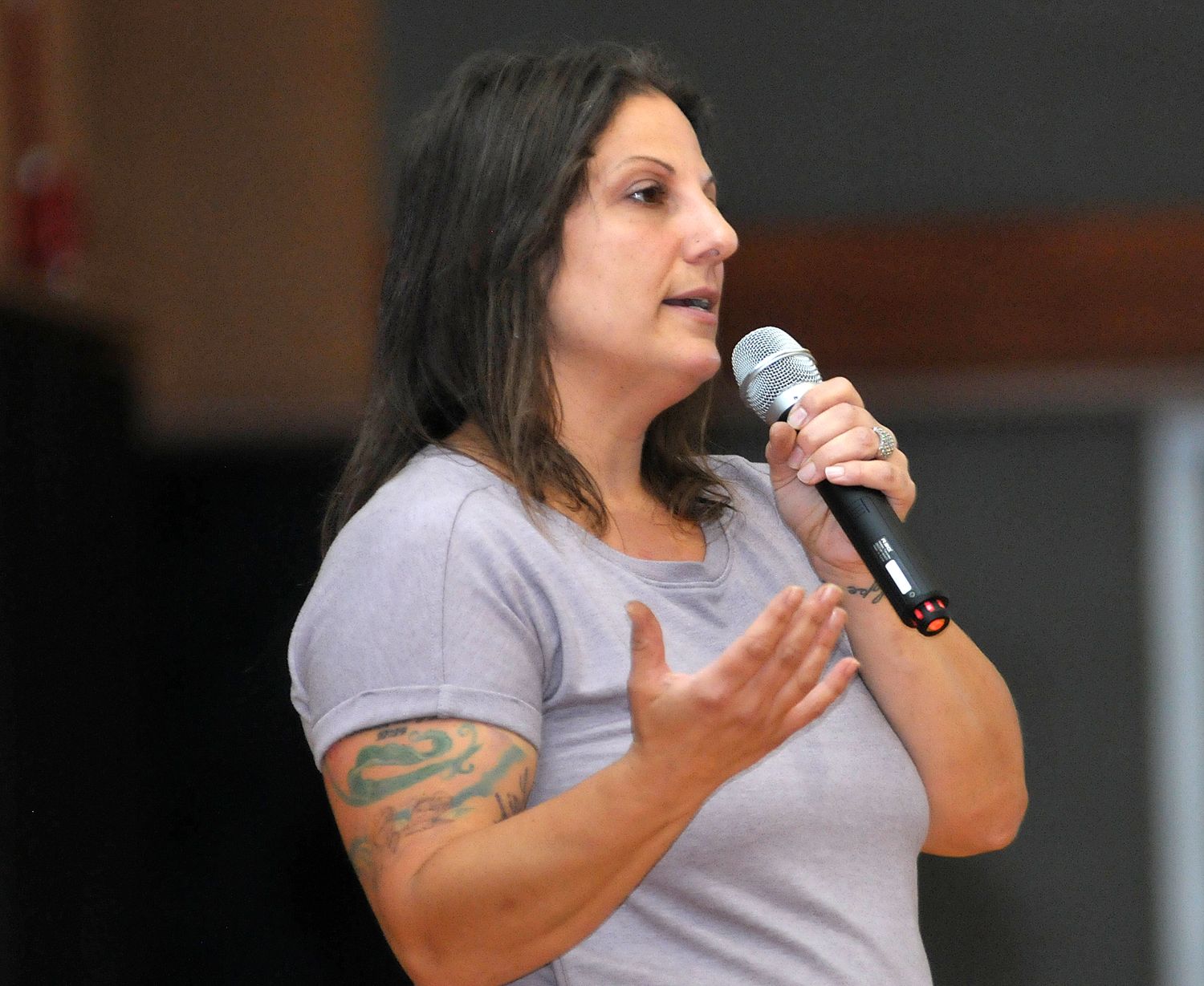Subscriptions
Menu
Advertisements
Sex-trafficking: Don't kid yourself, it's here
10/2/2019 |
By Patsy Nicosia |

Sex-trafficking.
Who’d think it would be a problem in upstate, rural New York?
Jasmine Grace for one.
After more than a dozen years of forced prostitution and then drug addiction, she’s forced her way back into a life where she has to balance her checkbook and pay rent—“normal” things she once never dreamed would be possible for her.
Ms. Grace was the featured speaker at a Safe Harbour conference held Friday for about 120 students, professionals, and community members at SUNY Cobleskill and organized by the Schoharie County Youth Bureau.
The SCYB is in administering a five-year grant intended in part to raise awareness of what sex-trafficking looks like here, George McDonnell, director, said.
And it’s not necessarily what you think, said John Kelly, Saratoga County’s Safe Harbour coordinator, where efforts are in their fifth year.
When Saratoga County first began looking at the issue, Mr. Kelly said, the consensus was “This can’t be an issue in our county.”
But it was, with most of those involved flying under the radar, living in the woods or in Department of Social Services hotels, afraid of going to the police and not in the “system.”
Sex- and human-trafficking is a confusing term, Mr. Kelly said.
“It’s not vans of people racing across the border,” he said, but people like Ms. Grace, vulnerable and falling through the cracks.
“When I look back [on his years as a school resource officer], at all the troubled kids I saw…I wish I knew then what I know now,” he said.
“It’s not the international victims we’re seeing. It’s homegrown kids who grew up in our community who were dealt a really crappy deck of cards and people who swooped down and took advantage of them.
“It is in your community. It’s in every community. It’s everywhere.”
Holding the crowd’s attention for more than 30 minutes, Ms. Grace talked about growing up in a family where her mom was mentally ill and her dad worked all of the time.
“I was left on my own a lot,” she said. “It was more on the neglect side.”
She started drinking and drugging when she was 12 and doesn’t remember being raped at 13 because of blackouts.
Still, she said, she had plans: she earned her cosmetology license and dreamed of going to college for journalism and then working for a fashion magazine in New York City.
“I never wanted to be a prostitute,” the Boston native said. “What little girl does?”
And unlike the movie “Pretty Woman,” Richard Gere never showed up in a Lamborghini with a string of pearls.
Instead, she met a guy at a bar and missed all of the red flags.
“He spent $7 on me for a drink and I was impressed,” she said. “That’s all it took…He met my family, he came over for Thanksgiving and Christmas…”
But not only was he a drug dealer, “He became my trafficker. He started putting all of these lies in my head…that I was worthless. It was a slow process, the manipulation. They try to break you down mentally, physically.”
In rural areas like upstate New York and Maine, where she eventually began working, sex-trafficking isn’t something you see on the street, Ms. Grace said; it goes on in massage parlors—and ordinary-looking homes.
“The first time I exchanged myself for money, I was horrified,” she said.
But there were also “Some days, when I thought ‘This is the life’,” she said, with jewelry, furs, and trips—to work—to Nevada and California.
She was making $1,600 a day—money she had to turn over to her boyfriend-trafficker-pimp.
Eventually with the help of a client—a drug-dealer who wanted her company, but not sex—she was able to get her own apartment, earn her college degree—and go back to her abuser.
“After a lot of violence, a lot of bleeding, a broken glass door, I found the courage to call 911,” but it took another four years of being a homeless heroin addict before Ms. Grace found support—and help—in groups like AA and a church.
“We all need one safe, supportive person,” she said. “Non-judgmental, who doesn’t try to tell you want to do.
Ms. Grace has been sober and off the street since September 2007.
She’s published her story in a book, “The Diary of Jasmine Grace,” and runs the non-profit Bags of Hope, collecting donated toiletries for at-risk women.
“And though life is “still messy,” it’s better than what she imagined.
“For eight years, I couldn’t find a way out. I thought I’d be a dirty, prostitute junkie for the rest of my life. I could never imagine where I am today.
Ms. Grace’s talk was followed by a panel discussion that included participants from Planned Parenthood and Safe Harbour.









